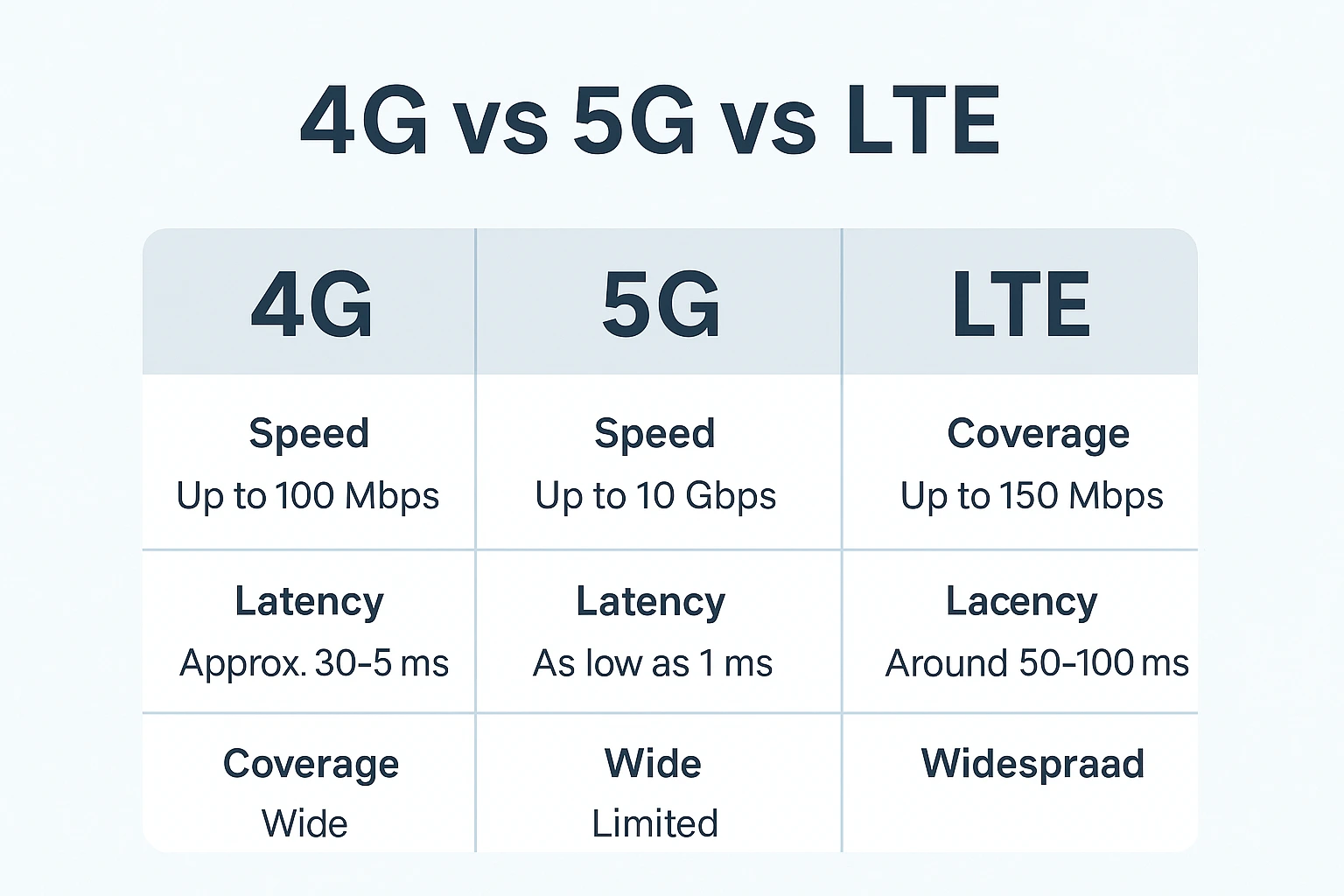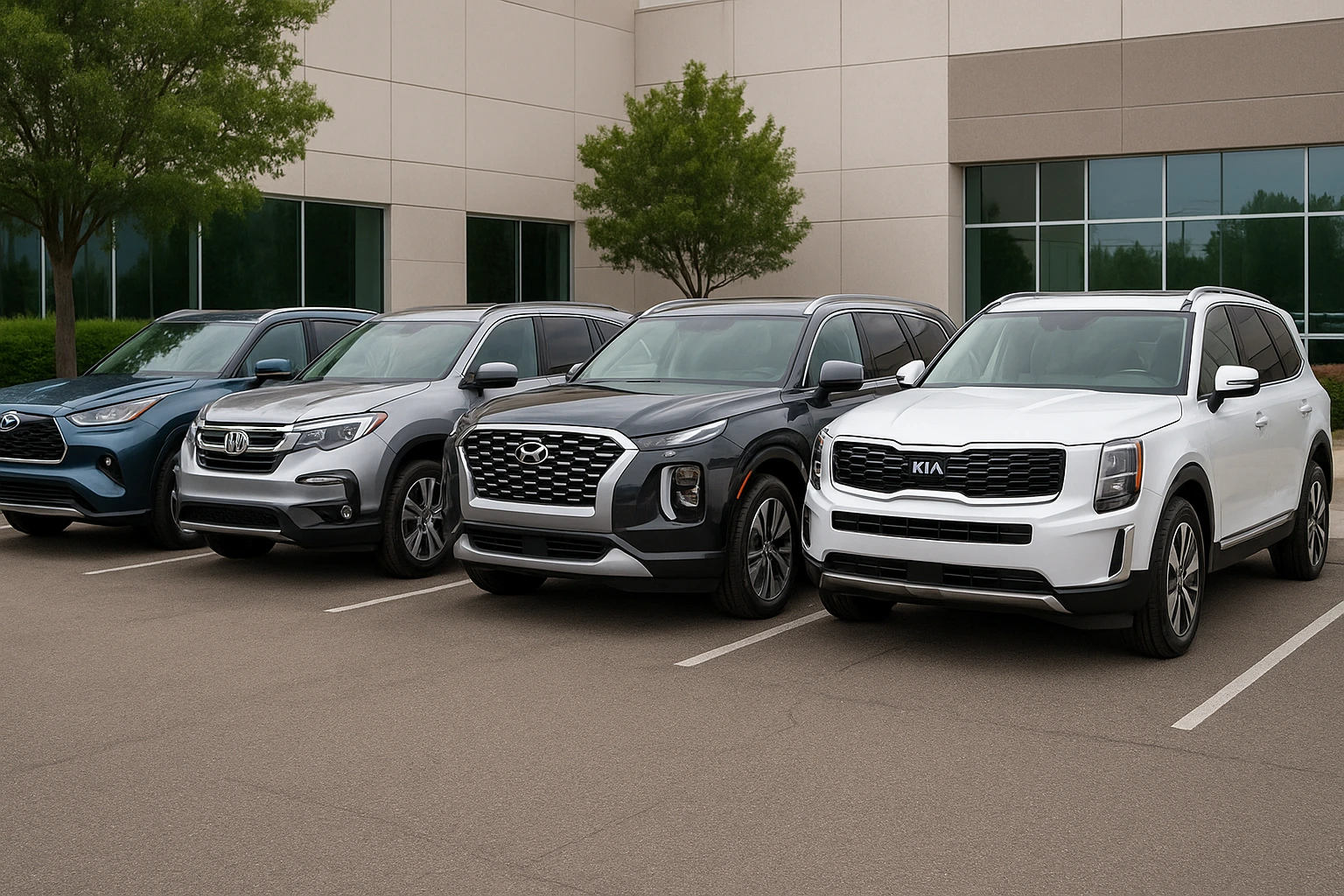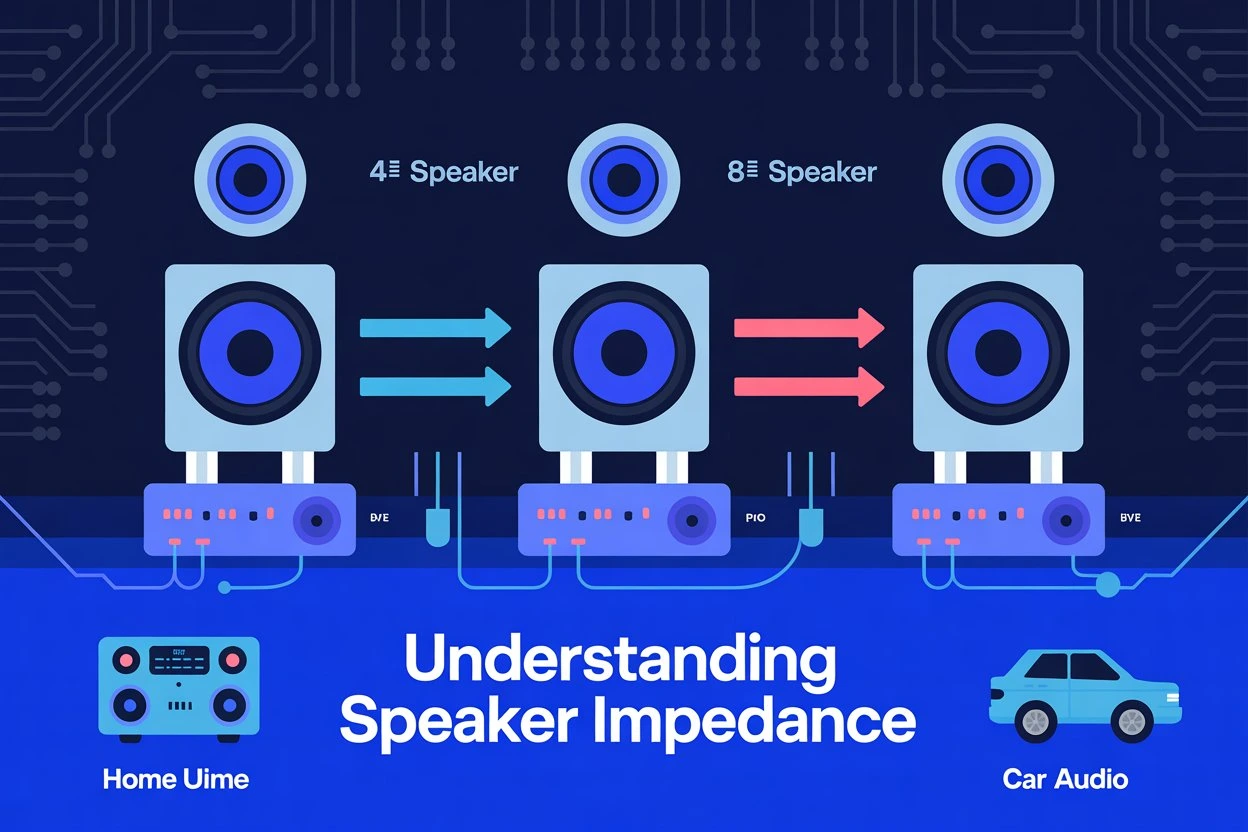4G vs 5G vs LTE: What’s the Difference and Why It Matters
If you’ve ever stared at the corner of your phone wondering what those letters 4G, LTE, or 5G actually mean, you’re not alone. With new phones, data plans, and buzzwords thrown around daily, understanding mobile networks can feel like decoding a tech alphabet soup.
So today, we’re breaking it all down. In simple terms, we’re going to explore 4G vs 5G vs LTE, look at what makes them different, and help you figure out which one’s best for you.
Understanding Mobile Network Generations
What is a Mobile Network Generation?
Every so often, the world takes a leap forward in mobile connectivity. Each leap is marked as a new generation or “G” in mobile networks. From clunky 1G calls to blazing-fast 5G streaming, every generation upgrades speed, capacity, and features.
4G vs 5G vs LTE
Evolution from 1G to 5G
-
1G: Analog voice only (think old-school brick phones)
-
2G: Digital voice and SMS
-
3G: Web browsing and basic data
-
4G: High-speed internet, video calls, streaming
-
5G: Ultra-fast, low-latency connections for smart cities, VR, and more
What is 4G?
Definition and History
4G stands for the “Fourth Generation” of mobile technology. Launched around 2009, it was a huge step up from 3G, enabling HD video streaming and faster browsing.
Key Features of 4G
-
Speeds up to 100 Mbps
-
Better voice call quality
-
Support for HD mobile TV, video conferencing, etc.
Benefits of 4G Technology
-
Fast downloads and uploads
-
Stable video calls
-
Smooth mobile gaming experience
What is LTE?
What Does LTE Stand For?
LTE stands for Long Term Evolution. It’s not exactly a generation like 3G or 4G it’s more of a bridge technology that helped us transition smoothly from 3G to 4G.
Is LTE the Same as 4G?
Not exactly. LTE is often marketed as 4G, but technically it’s a step below “true 4G.” When LTE Advanced came out, it finally met the 4G standard set by the ITU (International Telecommunication Union).
Advantages and Limitations of LTE
Pros:
-
Faster than 3G
-
More efficient and stable
Cons:
-
Slower than 4G and 5G
-
Higher latency compared to 5G
What is 5G?
Definition and Development
5G is the fifth generation of mobile networks, rolled out globally starting in 2019. It’s built to support the connected world think IoT, smart homes, self-driving cars.
How 5G Works
It uses higher-frequency radio waves and massive MIMO (multiple-input, multiple-output) antennas to deliver ultra-fast speeds with minimal delay.
Key Benefits and Features
-
Speeds up to 10 Gbps
-
Latency as low as 1 ms
-
Handles more devices at once (ideal for smart cities)
4G vs LTE: Breaking Down the Differences
Speed Comparison
-
4G: Up to 100 Mbps
-
LTE: Up to 50 Mbps (can go higher with LTE-A)
Latency and Performance
-
4G offers better responsiveness than LTE
-
LTE may suffer in crowded areas
Coverage and Compatibility
-
LTE has broader support in older phones
-
4G generally provides better performance in urban areas
4G vs 5G: What Sets Them Apart
Data Speed
-
4G: Fast
-
5G: Blazing fast
You can download a full HD movie in 30 seconds on 5G.
Latency Differences
-
4G: ~50 ms
-
5G: As low as 1 ms
Perfect for real-time gaming or autonomous vehicles.
Use Cases and Applications
-
4G: Great for mobile apps and streaming
-
5G: Designed for advanced tech like remote surgery and VR
LTE vs 5G: What’s the Upgrade Like?
Technical Improvements
-
Higher capacity, lower interference
-
5G can support thousands of devices per square km
Real-World Performance
-
LTE: Stable for everyday use
-
5G: Best performance in cities with upgraded towers
Which Network Should You Use Right Now?
Based on Location
-
In urban areas, 5G might be available and worth it
-
Rural areas? 4G or LTE may still be your best bet
Based on Device Compatibility
-
Your phone must support 5G to access it
-
Most older phones support 4G or LTE
Based on Usage Needs
-
Casual browsing? LTE is fine
-
Streaming and gaming? Go for 4G or 5G
The Future of Mobile Networks
Is 6G Coming Soon?
Yes, it’s already in research. Expect it to roll out around 2030 with speeds 10x faster than 5G.
Transition Trends Worldwide
-
Asia is leading in 5G rollouts
-
Developing nations still rely on LTE and 4G
Common Misconceptions
LTE is Slower than 3G?
Nope! LTE is much faster and more reliable.
5G is Harmful?
There’s no credible scientific evidence that 5G is dangerous to human health.
Choosing the Right Network for Your Device
Smartphone Users
If your phone is 5G-ready, go for it. Otherwise, 4G LTE still does a fantastic job.
IoT and Smart Devices
5G is better for future-proofing your smart home, but LTE works just fine for now.
How Network Choice Impacts Daily Life
Streaming and Gaming
5G = zero buffering and ultra-low lag.
Remote Work and Education
Stable 4G/LTE is essential. 5G enhances video calls and cloud apps significantly.
Conclusion
Whether you’re a casual scroller, a remote worker, or a hardcore gamer, your choice of mobile network matters. 4G, LTE, and 5G each serve a purpose depending on your location, device, and lifestyle. While 5G is the future, 4G and LTE are still reliable workhorses. The key is knowing what you need and making sure your device can support it.
FAQs
1. Is LTE better than 4G?
Not really LTE is technically a stepping stone to 4G. LTE Advanced is closer to true 4G.
2. Can I use 5G on a 4G phone?
No, 5G requires specific hardware that older 4G phones don’t have.
3. Is 5G available everywhere?
Nope. It’s still being rolled out and mainly available in urban areas.
4. Does 5G use more battery?
Yes, in many cases, because it connects to more antennas and processes more data.
5. Will 4G be phased out?
Eventually, but not anytime soon. 4G will continue to be supported for years to come.

![IMG_20250629_222056_944[1]](https://mytechroutine.com/wp-content/uploads/2023/12/IMG_20250629_222056_9441.webp)




